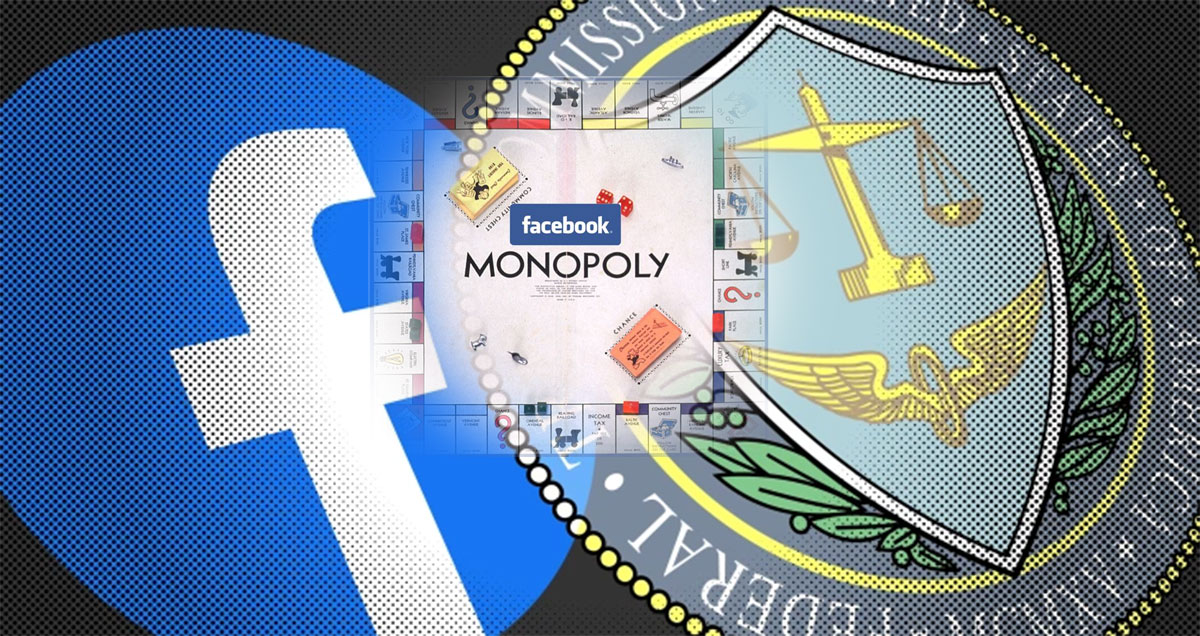Meta Faces FTC Defense In Monopoly Case

Table of Contents
The FTC's Allegations Against Meta
The FTC's lawsuit against Meta centers on the assertion that the company illegally maintained its dominant position in the social networking market through a series of anti-competitive acquisitions, most notably Instagram and WhatsApp. The FTC argues that these acquisitions, far from being beneficial innovations, were strategic moves designed to neutralize emerging rivals and solidify Meta's monopoly. The "FTC vs Meta" conflict isn't just about past acquisitions; it's about setting a precedent for future tech mergers and acquisitions.
The FTC's core argument rests on several pillars:
- Acquisition of Instagram and WhatsApp stifled competition: The FTC claims that by acquiring these platforms, Meta eliminated potential competitors that could have challenged its dominance in the social media market. This prevented the emergence of innovative alternatives and limited consumer choice.
- Meta leveraged its market dominance to suppress rivals: The lawsuit alleges that Meta used its vast resources and market power to actively suppress smaller competitors, hindering their growth and development.
- Meta engaged in anti-competitive practices to maintain its monopoly: The FTC asserts that Meta engaged in a range of anti-competitive behaviors beyond acquisitions, including strategic partnerships and internal policies designed to maintain its grip on the market.
Meta's Defense Strategy
Meta's defense against the FTC's accusations is multifaceted and will likely focus on demonstrating the benefits of the acquisitions to consumers and challenging the FTC's definition of the relevant market. The company will likely argue that the acquisitions fostered innovation and integration, ultimately benefiting users.
Key points in Meta's likely defense include:
- Argument that acquisitions fostered innovation and benefited users: Meta will likely argue that the integration of Instagram and WhatsApp into its ecosystem led to enhanced features and improved user experiences. They might highlight the cross-platform functionality and increased reach achieved through these integrations.
- Challenge the FTC's market definition and scope of competition: Meta's legal team will likely challenge the FTC's definition of the relevant market, arguing that the market is far broader than just social networking and includes a multitude of competing platforms and communication tools.
- Emphasis on the competitive nature of the social media market: Meta will strive to highlight the intense competition within the social media sector, emphasizing the presence of numerous other platforms vying for users’ attention.
Potential Outcomes and Implications
The potential consequences of a guilty verdict for Meta are substantial and far-reaching. This "Meta Monopoly Case" could result in significant fines, forced divestitures (selling off Instagram or WhatsApp), and substantial changes to Meta’s business practices. This case sets a crucial precedent, impacting future antitrust actions against large tech companies.
Possible scenarios and their ramifications include:
- Forced divestiture of Instagram or WhatsApp: This would represent a significant blow to Meta, potentially altering the competitive landscape dramatically.
- Significant financial penalties for Meta: Substantial fines could significantly impact Meta's financial performance and future investments.
- Increased regulatory scrutiny for future tech acquisitions: This case could lead to stricter regulatory oversight of future mergers and acquisitions in the tech industry, making it harder for large companies to consolidate their power.
- Impact on innovation within the social media sector: The outcome could significantly impact innovation, either by stifling it through increased regulatory hurdles or fostering it through more competition.
The Future of the Meta Faces FTC Defense in Monopoly Case
The "Meta Faces FTC Defense in Monopoly Case" presents a complex legal and economic battle. Both sides have compelling arguments, and the outcome will have profound implications for the tech industry and the future of antitrust enforcement. While predicting the ultimate decision is challenging, the case highlights the growing tension between the immense power of tech giants and the need to ensure fair competition.
The FTC's case against Meta is a pivotal moment, shaping the future of antitrust law and competition in the digital age. To stay informed about further developments in this crucial legal battle, keep up-to-date on the FTC's case against Meta, follow the developments in the Meta monopoly case, and learn more about the legal battle between Meta and the FTC. The implications are far-reaching, affecting not only Meta but the entire tech ecosystem.

Featured Posts
-
 Exploring Bangladesh Your Gateway To Information On Bangladeshinfo Com
May 21, 2025
Exploring Bangladesh Your Gateway To Information On Bangladeshinfo Com
May 21, 2025 -
 Overcoming The Love Monster Finding Lasting Love And Fulfillment
May 21, 2025
Overcoming The Love Monster Finding Lasting Love And Fulfillment
May 21, 2025 -
 Preparing For High Winds Associated With Fast Moving Storms
May 21, 2025
Preparing For High Winds Associated With Fast Moving Storms
May 21, 2025 -
 Juergen Klopp Un Yeni Takimi Son Dakika Transfer Detaylari
May 21, 2025
Juergen Klopp Un Yeni Takimi Son Dakika Transfer Detaylari
May 21, 2025 -
 Jeremie Frimpong Transfer Saga Deal Done Liverpool Communication Pending
May 21, 2025
Jeremie Frimpong Transfer Saga Deal Done Liverpool Communication Pending
May 21, 2025
Latest Posts
-
 Mainzs Henriksen The Next Klopp Or Tuchel
May 21, 2025
Mainzs Henriksen The Next Klopp Or Tuchel
May 21, 2025 -
 Kaellmanin Ja Hoskosen Puolalaisjakso Paeaettyi
May 21, 2025
Kaellmanin Ja Hoskosen Puolalaisjakso Paeaettyi
May 21, 2025 -
 Mainz Henriksen Following In The Footsteps Of Klopp And Tuchel
May 21, 2025
Mainz Henriksen Following In The Footsteps Of Klopp And Tuchel
May 21, 2025 -
 Huuhkajat Kaksikko Kaellman Ja Hoskonen Palaavat Kotimaahan
May 21, 2025
Huuhkajat Kaksikko Kaellman Ja Hoskonen Palaavat Kotimaahan
May 21, 2025 -
 Fremantle Q1 Financial Results 5 6 Revenue Decrease Attributed To Budget Cuts
May 21, 2025
Fremantle Q1 Financial Results 5 6 Revenue Decrease Attributed To Budget Cuts
May 21, 2025
